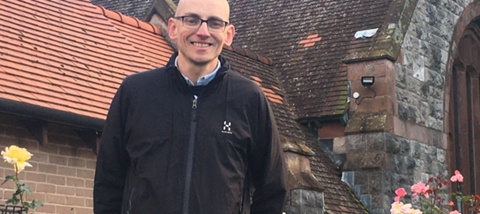
I have always had a love-hate relationship with labels, a real concern that they can become a thing that shapes, even determines us; a hindrance rather than a help. Of course, many are simply statements of fact, such as some of mine – Christian, husband, father, minister.
But others could create a barrier that prevents people, and even ourselves, from seeing and realising our true potential. That was what I feared most when I was diagnosed with autism (ASC) in my forties.
Thankfully, autism is better understood than it ever has been. We are now a long way from the days when, as an awkward and often angry child, my mother would take me to the doctors for help, but there was no support pathway, so nothing came of the visit.
Helpfully many areas of society are understanding that simple adaptations, such as quiet hours in supermarkets, can be of infinite benefit to those who find the world overwhelming at times.
I am 44 years old, so my diagnosis is considered fairly late, meaning that I have quite a lot of life to look back on through a new lens. This is something that I am still doing, but it is safe to say that there are many moments that now make a lot more sense to me through the eyes of ASC!
I began my Baptist ordination training aged 22, and have, apart from two years when I trained and taught as a primary school teacher, been in formal ministry roles in churches. It came as quite a shock when the psychologist stated that, given my diagnosis and what he had seen, it might be better for my general well-being to seek another career.
I have been a minister of a church for most of my adult life, so it would be quite a thing to change jobs, and that is without considering the very real experience for me of God’s calling and provision, through all the joys and sorrows of serving his Church.
I decided to remain in my role as minister, but my clinical assessment did highlight a number of issues around my mental health that I believe have helped me put in place better boundaries, which has ultimately led to me being more effective in serving others.
It has been true that while ministry has been the joy of my working life, it feels exhausting and overwhelming a lot of the time. Now I have a ‘communication passport’, which I can give to employers to show them how they can relate to me. This notably includes direction for people to always say clearly what they mean, and to try and ensure that my work-life has an established pattern – things that I have not often experienced in ministry.
Struggling with lack of clarity in communication, and the trials of a constantly moving work schedule is not unique to being autistic, but research shows that the struggles can be heightened for those with ASC, and that has definitely been my experience.
Throughout my life God has been faithful, and again and again I have seen his hand at work in beautiful and redemptive ways. It is with the knowledge of God’s faithfulness through the whole time before my diagnosis of autism that shows me I can trust him for the days ahead.
Knowing I am autistic motivates me to contend for a Church where it is a good place to be autistic, where we speak clearly to one another, and where we know that many words might be used to describe us, but it is ultimately the work of Christ that defines and unifies us as the beautiful bride.
Rev Dr Robert Beamish is minister at Prince's Drive Baptist Church, Colwyn Bay, and a hub tutor for The Light College with Northern Baptist College






























